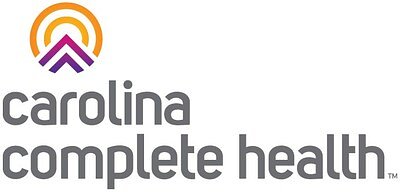
Healthcare Groups Invest Millions to Fight Rising Food Insecurity in North Carolina
As SNAP benefits dwindle, Carolina Complete Health and the Centene Foundation are partnering with local food banks to address a growing crisis, investing millions to ensure vulnerable communities have access to nutritious food.
Healthcare Groups Invest Millions to Fight Rising Food Insecurity in North Carolina
Raleigh, NC – As economic pressures mount and federal assistance programs face cuts, a growing number of North Carolinians are struggling to put food on the table. Recognizing this escalating crisis, Carolina Complete Health (CCH) and its parent company, the Centene Foundation, are investing millions of dollars in local food banks and healthcare initiatives across the state. The partnership aims to bolster food security for vulnerable communities and address the underlying health impacts of food insecurity.
This increased support comes at a critical time. The recent expiration of temporary SNAP (Supplemental Nutrition Assistance Program) benefits in March 2023 left many families facing a sudden 15% reduction in their food assistance. Coupled with ongoing inflation and rising costs of living, this has created a perfect storm for increased food insecurity across North Carolina. According to Feeding America’s Map the Meal Gap data, 13.8% of North Carolinians – over 1.38 million people – are currently food insecure, including nearly 19% of children.
“We are seeing a significant increase in the number of families who need assistance,” says a representative from the Food Bank of Central & Eastern North Carolina. “The SNAP cuts have definitely exacerbated the problem, and we are struggling to keep up with the demand.” The Food Bank, one of the primary beneficiaries of the CCH and Centene Foundation investment, reports a 20% increase in the number of individuals served in 2022.
CCH and the Centene Foundation are directing $3 million to 11 food banks and pantries across the state, as well as 10 Federally Qualified Health Centers (FQHCs). These FQHCs will integrate food screening and referral services into their primary care offerings, connecting patients with available food resources and addressing the health consequences of food insecurity. This holistic approach acknowledges the inextricable link between nutrition and overall health.
Beyond Emergency Relief: Addressing the Root Causes
While immediate relief is crucial, the partnership emphasizes a long-term strategy to combat food insecurity. “We recognize that simply providing food is not enough,” explains a spokesperson for Carolina Complete Health. “We need to address the underlying systemic issues that contribute to food insecurity, such as poverty, lack of access to affordable housing, and limited transportation.”
The investment in FQHCs is a key component of this strategy. By integrating food screening into primary care, healthcare providers can identify patients at risk of food insecurity and connect them with resources such as SNAP benefits, WIC (Women, Infants, and Children) programs, and local food pantries. This proactive approach can prevent health problems associated with malnutrition and improve overall health outcomes.
“Food insecurity is not just a hunger issue; it’s a health issue,” explains a healthcare professional at a participating FQHC. “Malnutrition can lead to a variety of health problems, including weakened immune systems, chronic diseases, and developmental delays. By addressing food insecurity, we can improve the health and well-being of our patients.”
A Growing Trend: Healthcare Embracing Social Determinants of Health
The CCH and Centene Foundation investment is part of a growing trend in the healthcare industry towards recognizing and addressing the social determinants of health – the economic and social conditions that influence health outcomes. Healthcare organizations are increasingly recognizing that factors such as food insecurity, housing instability, and lack of transportation have a significant impact on health, and are investing in programs to address these challenges.
Blue Cross and Blue Shield of North Carolina, for example, recently announced a $1 million investment in food security initiatives across the state. UnitedHealthcare has launched a “Food as Health” program in multiple states, including North Carolina. These initiatives demonstrate a growing recognition that addressing social determinants of health is essential to improving health outcomes and reducing healthcare costs.
“We are seeing a shift in the healthcare industry towards a more holistic approach to care,” explains a healthcare economist. “Healthcare organizations are realizing that they can’t just treat illnesses; they need to address the underlying social and economic factors that contribute to poor health.”
The Road Ahead: Continued Collaboration and Innovation
While the CCH and Centene Foundation investment is a significant step forward, much work remains to be done to address food insecurity in North Carolina. Continued collaboration between healthcare organizations, food banks, community organizations, and government agencies is essential to ensure that vulnerable communities have access to the resources they need.
“We need to work together to create a more equitable and sustainable food system,” says a representative from Second Harvest Food Bank of Metrolina. “This requires addressing systemic issues such as poverty, affordable housing, and access to transportation, as well as investing in programs that support local farmers and food producers.”
Innovation is also key to addressing food insecurity. New technologies and approaches, such as mobile food pantries, online food ordering systems, and community gardens, can help to improve access to food and make it easier for people to get the nutritious food they need. The partnership between CCH and Centene Foundation is encouraging such innovation, with hopes of creating a lasting impact on the lives of North Carolinians facing food insecurity.
As economic pressures continue to mount, the need for such investments will only grow. By prioritizing food security, healthcare organizations and community partners can help to ensure that all North Carolinians have the opportunity to live healthy and productive lives.
